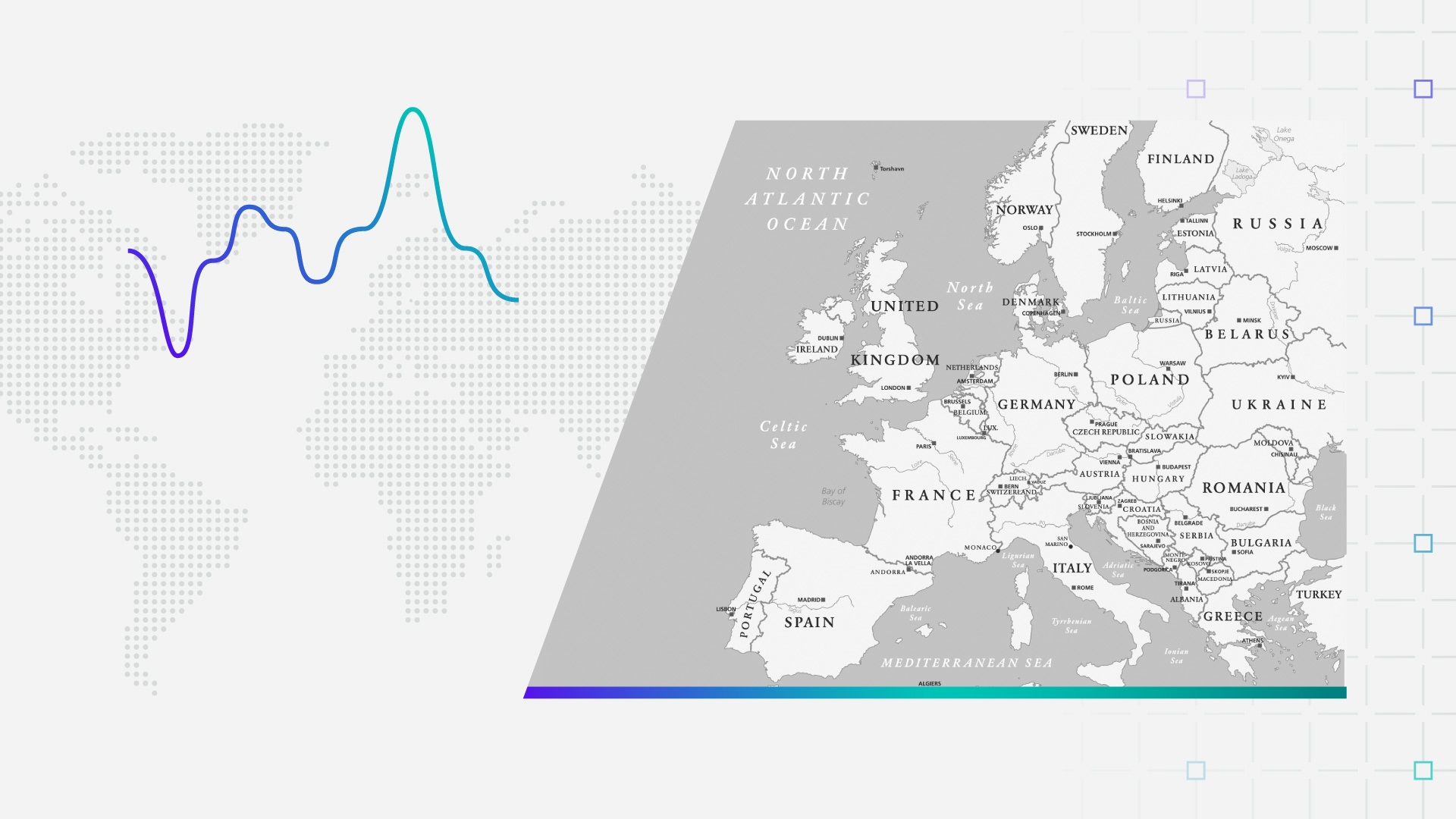Why Europeans Are Boycotting U.S. Companies (It's Not Only About Tariffs)

Key Takeaways
French and German consumers lead in boycotting behavior, with 1 in 5 French consumers reporting they've boycotted a foreign brand in the past year, followed by German and U.K. consumers (at 19% and 16%, respectively). The majority of these boycotts have specifically targeted U.S. brands.
Food & beverage brands are the primary targets across key Western European markets, with the same two American brands topping consumers’ lists of boycott targets. Other frequently boycotted American companies include Elon Musk's enterprises.
Political motivations vary by country: French and German boycotters primarily cite U.S. President Trump's policies and rhetoric, while Italian and Spanish consumers more frequently mention the Gaza conflict. However, many boycotts are also still driven by everyday concerns like price increases and customer service issues, or by pre-existing corporate purpose issues like environmental sustainability or animal welfare.
Effective brand responses to boycotts require action, not words. European consumers, especially the French and British, are skeptical of public apologies. Companies facing boycotts should emphasize local investments, employment, and community contributions rather than relying on statements alone.
The current wave of European boycotts could accelerate European consumers’ substitution away from U.S. brands in conjunction with price increases in the event of high retaliatory tariffs. They are also likely to increase consumers’ support for policy barriers that create more isolated markets for U.S. brands, undermining the global rules-based order that has benefited U.S. multinationals for decades.
International consumer boycotts are having a moment. They are certainly not a new tactic, having been used to punish countries for their foreign policy, air religious grievances, and pressure companies to take ethical stances that consumers favor. Examples on these fronts include U.S. boycotts of French products following France’s opposition to the Iraq war, Middle Eastern consumers’ boycott of Danish products in response to a cartoonist’s depiction of the Prophet Mohammed, and boycotts to pressure Western companies to withdraw from apartheid South Africa, respectively. But with social media and political polarization spreading the reach and heightening the tenor of the conversation, they are very much in the public eye in recent years.
Major geopolitical events in the past few years, including Russia’s invasion of Ukraine and later the conflict in Gaza, have led groups of concerned consumers in proximate markets to boycott goods perceived to support opposing views. More recently, consumers in overseas markets have begun to shun U.S. brands in response to President Trump’s trade policy and rhetoric. While Canada was an early and intense boycotter in response to tariffs and threats of annexation, European consumers are getting in on the action.
French and German consumers are more likely to say they have boycotted in the last year
In a quarterly survey of the five largest Western European economies — France, Germany, Italy, Spain and the United Kingdom — we find that French consumers are the most likely to say they have boycotted a foreign brand in the preceding 12 months, with 1 in 5 claiming to have done so, followed by German and U.K. consumers.
Up to 1 in 5 Western European consumers in key markets say they have boycotted in the last year, led by France
U.S. brands are the favorite targets of European boycotts
This topline number includes boycotts of any foreign brands, not just U.S. brands, and does not stipulate a specific reason. But a deeper look at the data reveals that the majority of this activity is aimed at U.S. brands.
Specifically, respondents who said they had boycotted a foreign brand in the last year were given the opportunity to volunteer the names of up to 10 brands they had boycotted. The vast majority of those respondents named at least one brand, with over 200 brands mentioned. Of the most-mentioned brands, the majority of them hailed from the United States.
U.S. brands top European consumers’ lists of foreign boycott targets

By industry, European consumers overwhelmingly said that they have actively boycotted U.S. food & beverage brands — whether packaged food or quick service restaurants — in the past year. In fact, in all four continental European markets, the same two U.S. food & beverage brands were the top two most-mentioned boycott targets. Only in the United Kingdom did one of them get bumped down the list … by another U.S. food & beverage brand. This aligns with other research showing that the food & beverage sector is particularly exposed to boycotts. Other brands, including Elon Musk’s X (formerly Twitter) and Tesla also made it into the most boycotted brands in several European markets, as did a major U.S. e-commerce platform.
Boycotts may help accelerate the effect of retaliatory tariffs in moving European consumers to substitute away from U.S. products. In a recent European Central Bank blog post, the authors noted that results of a survey seeking to quantify the elasticity of demand for U.S. products in the event of various levels of U.S. tariffs on the European Union with possible retaliation “show that consumers are very willing to actively move away from U.S. products and services.” They also note that contrary to typical patterns, higher-income E.U. consumers were more likely to switch products in response to tariffs, which the authors attribute to the salience of “preference” in this case, coded language for nationalism or politics.
In normal times, geopolitics ranks below business and labor practices as a boycott driver
It is tempting to completely attribute current European boycotts to political sentiment linked to recent events such as Trump’s tariffs. That is a big part of the story, but the entirety is more complicated. When we asked European consumers what types of brand behavior were most likely to motivate them to boycott a foreign company, tariffs and the policies of brands’ home countries were middle-of-the-pack. General nationalism and unethical company behavior were higher up. And while nationalism is certainly playing into current trade dynamics, the prevalence of other factors like labor relations and ethical business practices shows that in normal times, other factors will rank higher than geopolitics in consumers’ minds.
European consumers cite economic nationalism as their leading boycott driver, with tariffs and foreign policy in the middle

Trump’s policies were top of mind for French and German boycotters, but Gaza remains salient
To get a more granular read on consumers’ current thinking, we also looked at open-ended responses about their reasons for boycotting. Over 10% of consumers in each market who said they were likely boycotters selected the “Other” category and provided additional context. The more detailed responses generally fell into a few categories: companies’ or brands’ business practices, environmental concerns, economic nationalism, current political issues with the United States like tariffs and/or Trumpian rhetoric, human rights and ethics, tax avoidance and corruption, the war in Gaza, and to a lesser extent the war in Ukraine.
While the current U.S. administration and its rhetoric or policies were top of mind for French and German respondents who provided additional details, in Italy and Spain it was primarily companies’ perceived support for Israel amid the ongoing conflict in Gaza that was most often singled out. Our previous research on the topic noted that Western Europe was a region with significant risk of boycotts stemming from the Israel-Gaza conflict, followed by the Middle East and Muslim-majority countries in Asia. In the United Kingdom, those who cited specific reasons were more evenly split between anti-Trump boycotts, opposition to military conflicts, and company or brand behavior.
The latter is important to note: Many of those who claimed to be likely boycotters in the coming year were motivated not by geopolitics or ethical concerns, but by more quotidian complaints like price increases, bad customer experiences, or worries over data privacy practices. And given the prevalence of the food & beverage industry in the companies singled out for boycotts, it is also important to note that many Europeans have long considered the U.S. agro-food industry to be less environmentally sustainable and less healthy than its E.U. counterpart. So despite the prevalence of political issues in consumers’ open-ended responses, some of their anti-U.S. bias and their singling out food & beverage brands is of earlier provenance.
Talk is relatively cheap when responding to European boycotts
Of all the actions a company could take after a misstep, public apologies are among the least likely to convince European consumers to stop a boycott. The French in particular appear unimpressed with all kinds of public statements, with U.K. consumers also quite skeptical. Instead, pulling offending products from the market (if a boycott is related to a specific product) is a concrete move consumers more often say would halt a brand boycott. But boycotts, especially now, are not always motivated by a product issue.
For European consumers who are blanket-boycotting U.S. consumer goods for political reasons, product recalls or firing responsible employees are not viable options. Short of business leaders publicly distancing their companies from the administration, which could be politically risky back home, U.S. brands can and should highlight their ties to the market in question, including local investments and employment. Donating money to local humanitarian causes could also help to a lesser extent. Some markets are also generally more forgiving. Southern Europeans are on balance more likely than not to stop boycotting a company if they engage in any of the mentioned behaviors.
When it comes to boycott mitigation, talk is cheap … especially in France

America’s globe-striding brands have enjoyed decades of relatively permissive conditions to operate globally. Sure, there have been contentious trade talks and non-tariff barriers that have limited brands’ global reach in some cases, but the international rules-based order has been very good to U.S. multinationals overall. We are now in a period where that order is being called into question by the U.S. administration first and foremost, and while Washington’s recent tariff walk-back included conciliatory statements from U.S. Treasury Secretary Scott Bessent, the assumptions that global companies have relied on for 80 years have been called into question by the recent policy uncertainty, which we think is going nowhere fast.
Boycotts are not going to meaningfully change this global shift, but they can accelerate it in two ways. First, they can help change consumers’ habits in conjunction with price increases in the event of retaliatory tariffs. Second, they can increase consumers’ support for policy barriers that create more isolated consumer markets for U.S. brands, especially in advanced democracies like those in Western Europe. We have seen this happen already with U.S. agrofood companies losing access to European markets where public opposition to their presence was strong. As consumer activism continues to intersect with geopolitical tensions, U.S. brands must prepare for a future where global market access can no longer be taken for granted, requiring more nuanced and localized approaches to maintain their international standing and manage ongoing boycott risks.
Sonnet Frisbie is the deputy head of political intelligence and leads Morning Consult’s geopolitical risk offering for Europe, the Middle East and Africa. Prior to joining Morning Consult, Sonnet spent over a decade at the U.S. State Department specializing in issues at the intersection of economics, commerce and political risk in Iraq, Central Europe and sub-Saharan Africa. She holds an MPP from the University of Chicago.
Follow her on Twitter @sonnetfrisbie. Interested in connecting with Sonnet to discuss her analysis or for a media engagement or speaking opportunity? Email [email protected].


